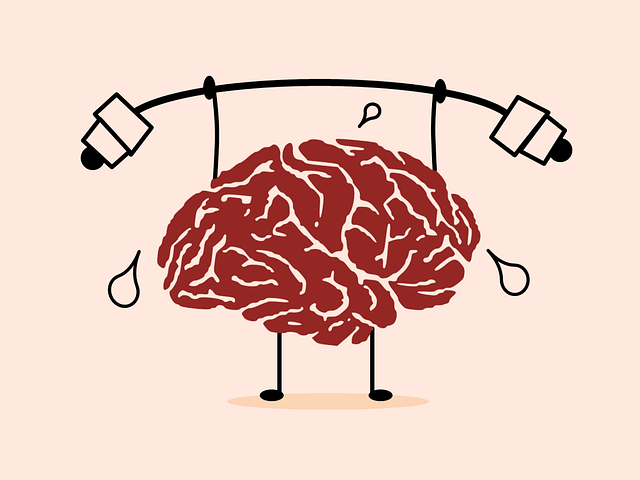Brain Love
Beth Joscelyne, 2018 SPCNM Graduate Practitioner
Let’s talk brain health. Our brain health is incredibly interconnected with our physical and mental health, and as it turns out, there is a lot we can do to keep our brains as healthy as possible, continuing right into old age.
Tackling the myths…
Thank goodness science has now well and truly put to bed the inaccurate beliefs that the wiring of our brain is pretty much done and dusted by the time we become an adult, that our brains are basically on the decline from early adulthood, and that any damage that occurs to the brain via illness or injury is basically beyond repair. Quite to the contrary, there is now plenty of evidence that a) rewiring of our brain (neuroplasticity) can continue throughout our entire lives, b) it’s never too late to improve the health of our brain, and c) repairing damage to the brain absolutely is possible.
So let’s celebrate (in a brain health-enhancing way…)!! There are many simple practices we can implement into our daily lives that are proven to support brain health and promote a sharp, clear-thinking and creative brain throughout our entire lives. A wee handful of these are explored below:
Promoting neuroplasticity:
Neuroplasticity is essentially the brain’s ability to create new connections or re-wire itself. To promote this process, our brains must be exposed to sensory and motor stimuli via our environment. Some examples of such stimuli include listening to music, visualisation exercises, and intentional learning of a new skill e.g. a language or art class. And yes, it turns out you CAN teach an old dog new tricks, as research confirms neuroplasticity can continue into old age. The critical part is, we must ensure our wonderful brains are being bathed in sensory and motor stimuli on an ongoing basis – as the saying goes ‘use it or lose it’.
Ensure your diet includes healthy fats & oils:
For good brain health, it is super important to include healthy fats and oils in our daily diet, with a special mention going to the essential fatty acid, omega 3, which has been shown to play a key role in structural development of the brain, enhanced memory, concentration and learning ability, reduced symptoms of various psychiatric and degenerative brain disorders, and prevention of mental decline and brain degeneration associated with aging. Furthermore, there is emerging evidence omega 3 can even facilitate the reversal of mental decline and brain degeneration.
Great dietary sources of omega 3 include oily fish such as wild caught salmon, sardines and mackerel, walnuts, chia, hemp and flax seeds, and egg yolks. Other examples of healthy fats and oils to include in your diet for brain health include cold pressed olive and hemp oils, coconut oil, avocados, raw seeds, and raw nuts such as almonds.
Anti-inflammatory diet:
A diet rich in ‘anti-inflammatory foods’ is health enhancing on many levels, and brain health is no exception. Loads of research demonstrates that following an ‘anti-inflammatory diet’, such as the Mediterranean Diet, contributes to enhanced cognitive performance and decreased risk of degenerative conditions such as dementia.
Anti-inflammatory foods include those rich in omega-3 (see above) and those rich in anti-oxidants such as colourful fruits and vegetables e.g. blueberries, green leafy vegetables, broccoli, beetroot, pineapple, etc.
Medicinal herbs & spices:
Go crazy adding your favourite herbs and spices to your meals, as many have been shown to nourish and support the nervous system via anti-inflammatory and circulatory-stimulating actions. A special mention goes to turmeric, with research highlighting that curcumin (found in turmeric) has some seriously health enhancing benefits on offer, including prevention of age-related cognitive decline. Specifically, it has been shown to inhibit amyloid formation (found in Alzheimer’s disease), protect against oxidative stress, reduce inflammation, promote neurogenesis (production of new neurons) and neuroplasticity, and improve performance and functioning of our neurotransmitter systems.
Stress management:
Chronic stress is a killer. Sounds dramatic but actually research well and truly confirms the link between chronic stress and everything from increased risk of the common cold, through to cancer and Alzheimer’s disease. In relation to brain health, chronic stress negatively impacts not only brain function, but also brain structure, right down to DNA-level! Additionally, chronic stress increases free radical load (which kills brain cells), negatively impacts mood, memory and emotional wellbeing, increases anxiety, AND it puts the kibosh on production of new brain cells. Basically, research has proven chronic stress negatively impacts almost every cognitive function and even shrinks our brain. ☹
Before you despair though, this just provides us with some serious incentive to work on enhancing our management of stress. There are loads of ways we can do this including, regular meditation or mindfulness activities, regular exercise, healthy diet, and good quality sleep. For more detail click here…
Did somebody say good quality sleep?
We’ve all experienced the brain fog that comes the day after a sleepless night, and yes research confirms a lack of quality sleep negatively impacts neuroplasticity, learning, memory, concentration and our response time. For tips on how to address your sleep issues, read on here…
Exercise!!
Research highlights regular aerobic exercise not only improves physical health, but also enhances brain health, in terms of both cognition and performance. In fact, it impacts our brain at a molecular, cellular, systems and behavioural level!
Some of the specific benefits regular exercise has on the brain includes protection and increased longevity of neurons, enhanced learning ability (speed and efficiency), increased blood flow to the brain, and decreased risk of stroke. On the flip side, a lack of physical activity is detrimental to brain health. Enough said – just go for a walk in the park!
In summary…
It’s time to go love your brain silly! If you know you could (or should) be looking after your brain a wee bit better, commit to implementation of any (or all) of the above suggestions. And the good news is, in addition to enhancing your brain health, all of these practices will serve your physical health in myriad of ways as well!
References
Anastasiou, C. A., Yannakoulia, M., Kosmidis, M. H., Dardiotis, E., Hadjigeorgiou, G. M., Sakka, P., … Scarmeas, N. (2017). Mediterranean diet and cognitive health: Initial results from the Hellenic Longitudinal Investigation of Ageing and Diet. Plos One, 12(8), e0182048–e0182048. https://doi.org/10.1371/journal.pone.0182048
Association for Psychological Science. (2008). Understanding role of stress in just about everything. Retrieved from https://www.sciencedaily.com/releases/2008/01/080108152439.htm
Cox, K. H. M., Pipingas, A., & Scholey, A. B. (2014). Investigation of the effects of solid lipid curcumin on cognition and mood in a healthy older population. Journal of Psychopharmacology, 29(5), 642–651. https://doi.org/10.1177/0269881114552744
Hillman, C. H., Erickson, K. I., & Kramer, A. F. (2008). Be smart, exercise your heart: Exercise effects on brain and cognition. Nature Reviews Neuroscience, 9, 58.
National Institute of Neurological Disorders and Stroke. (2017). Brain basics: Understanding sleep. Retrieved from https://www.ninds.nih.gov/Disorders/Patient-Caregiver-Education/Understanding-Sleep
Rhyu, I. J., Bytheway, J. A., Kohler, S. J., Lange, H., Lee, K. J., Boklewski, J., … Cameron, J. L. (2010). Effects of aerobic exercise training on cognitive function and cortical vascularity in monkeys. Neuroscience, 167(4), 1239–1248. https://doi.org/10.1016/j.neuroscience.2010.03.003
Salleh, M. R. (2008). Life Event, Stress and Illness. The Malaysian Journal of Medical Sciences : MJMS, 15(4), 9–18.
Wu, A., Ying, Z., & Gomez-Pinilla, F. (2004). Dietary omega-3 fatty acids normalize BDNF levels, reduce oxidative damage, and counteract learning disability after traumatic brain injury in rats. Journal of Neurotrauma, 21(10), 1457–1467. https://doi.org/10.1089/neu.2004.21.1457






